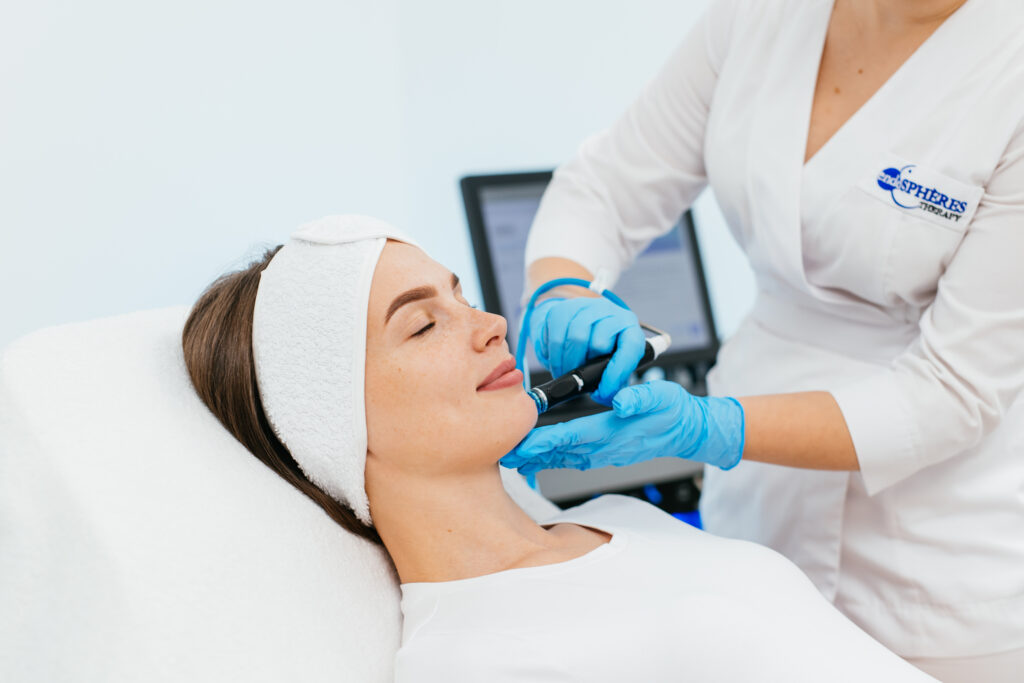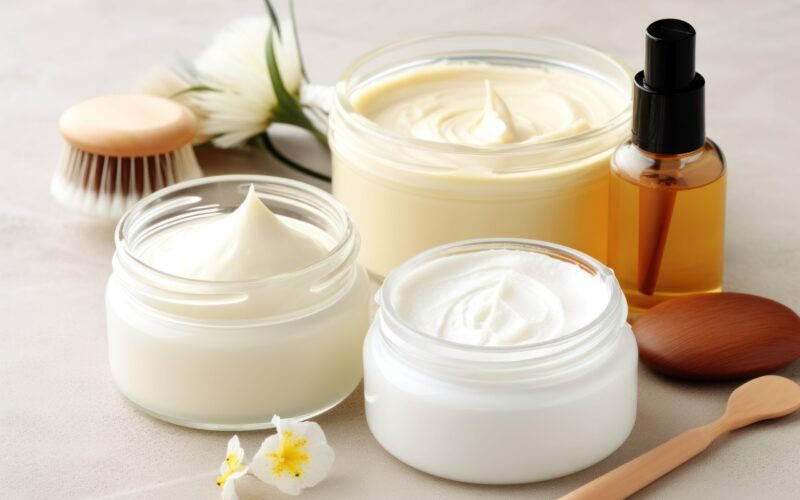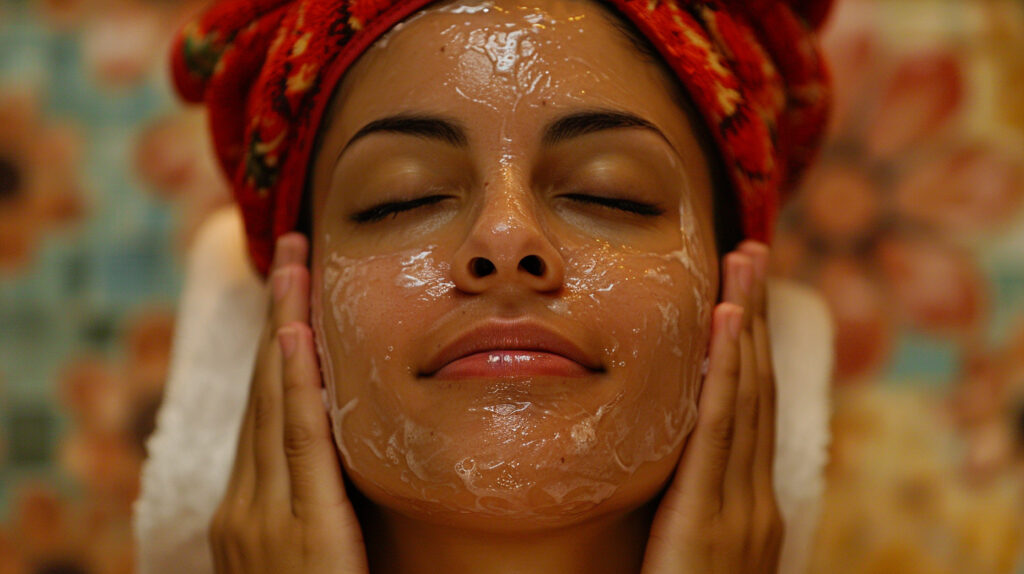Skin whitening creams, also referred to as skin brightening or lightening creams, are formulated to diminish skin color. These creams are frequently applied to target specific dark areas on the skin, like age spots or acne scars, and are occasionally used for an overall complexion lightening. However, there has been ongoing scrutiny regarding their drawbacks. Let’s explore the potential harms associated with these creams and consider alternative approaches to achieving a fairer skin appearance.
Table of Contents
Why are these skin whitening creams so popular?
Skin whitening is a widespread practice across Asia, with South Korea particularly valuing fair skin as the epitome of beauty. The prevailing belief among South Koreans is that having a lighter complexion is the key to looking beautiful, fueling a thriving multi-billion-dollar skin-whitening industry in the country.
The realms of K-pop and K-drama are inundated with fair-skinned celebrities, many of whom not only act as brand ambassadors but also set beauty standards. The growing popularity of K-pop and K-beauty has spurred the trend of skin whitening in other parts of Asia, notably in economically challenged nations like Thailand, where the use of unsafe skin whitening creams and other products has become prevalent. In Nepal, the cultural influence from Bollywood, featuring lighter-skinned lead actors, has been associated with the adoption of skin whitening creams among some darker-skinned men, underscoring the impactful role of cultural norms in shaping beauty perceptions.
How do they work?
Skin lightening products, alternatively termed bleaching creams, whiteners, skin brighteners, or fading creams, function by diminishing a pigment known as melanin in the skin. To achieve this, there are various potential mechanisms of action:
⦁ Inhibiting the activity of tyrosinase: The catalytic function of tyrosinase is hindered by the skin-whitening agent.
⦁ Suppressing the expression or activation of tyrosinase: The anti-melanogenic agent either reduces the production of tyrosinase or impedes its activation into its functional form.
⦁ Eliminating the intermediate products of melanin synthesis through scavenging.
⦁ Hindering the transfer of melanosomes to keratinocytes.
⦁ Directly breaking down existing melanin.
⦁ Eradicating melanocytes.
These products operate through these diverse pathways to achieve the desired skin-lightening effect.
Benefits of skin whitening cream
Certain skin whitening creams are designed to diminish the visibility of dark spots caused by factors like sun exposure, aging, and hormonal changes. They effectively address conditions such as age spots, freckles, blemishes, as well as post-inflammatory marks like those from eczema and psoriasis. These creams can also contribute to the reduction of scars for various reasons, potentially aiding in minimizing redness and puffiness associated with post-acne breakouts, although their efficacy may be limited during active inflammation.
Moreover, some ingredients present in skin whitening creams play a role in slowing down the aging process, promoting a younger and more youthful appearance. Notably, these creams offer a cost-effective alternative to pricier treatments like laser therapy and various skin therapies. In addition to affordability, certain skin whitening creams prioritize the overall health of the skin, delivering faster results without causing harm.
Here are some recommended products:
- Most suitable for most people: Meladerm
- Ideal for addressing melasma: Meladerm
- Used for anti-aging: Neutrogena Rapid Tone Repair Correcting Cream
- Recommended for eczema (atopic dermatitis): Andalou Naturals Probiotic + C Renewal Cream
- Well-suited for sensitive skin: Acure Brightening Cream and Serum
- Effective for acne spots: Hers Fast Fader Dark Spot Corrector
Risks Of Using Skin Whitening creams
Certain skin whitening creams incorporate mercury as one of their components, posing significant associated risks. A study brought to light that nearly 25% of skin whiteners produced in Asia and available outside the USA contained mercury.
Other potential risks linked to the use of skin whiteners include:
- Prolonged usage may lead to premature skin aging.
- Long-term application could heighten the risk of skin cancer due to sun exposure. It is advisable to use broad-spectrum sunscreen in conjunction with skin whiteners when outdoors.
- Steroids present in some skin whitening creams may elevate the risk of skin infections, thinning of the skin, acne marks, and impaired wound healing. Applying whiteners with steroids over larger areas may result in absorption by the body, posing potential harm.
- Skin irritation, allergic reactions, and allergies may arise if the skin whitener contains a bleaching agent.
- Some whiteners include hydroquinone, which has the potential to cause irreparable skin discoloration.
Are these products effective?
This question is prevalent among those contemplating the use of skincare products. While there are varied responses, they differ from person to person. A recent study involving numerous individuals has found that skin whitening creams have minimal impact on skin tone, and the outcomes are even less promising for those using over-the-counter products.
Some research indicates that certain individuals may develop melanoma (brown to grey-brown patches) and post-inflammatory hyperpigmentation. Less than half of the participants reported an enhancement in their skin tone. The conclusion is straightforward: it varies for each person. Therefore, it is advisable to seek advice from a dermatologist before incorporating any skincare product, as the specific needs of individual skin vary. It’s best to avoid over-the-counter products unless recommended by a dermatologist.
10 Alternatives for lightening creams

Certainly, there are various treatments for skin whitening beyond topical creams. It’s essential to approach these treatments with caution, considering individual skin types and potential risks. Here are some alternative skin-whitening procedures:
- Laser Therapy:
i. Fractional Laser Treatment: This treatment targets specific areas of the skin, promoting collagen production and reducing pigmentation. It can be effective for treating sun damage, age spots, and melasma.
ii. Q-Switched Laser: Targets pigmented areas in the skin, breaking down melanin and reducing hyperpigmentation. - Chemical Peels:
i. Trichloroacetic Acid (TCA) Peels: Penetrates deeper layers of the skin, addressing sun damage, age spots, and melasma.
ii. Jessner’s Peel: A combination of salicylic acid, lactic acid, and resorcinol that can help lighten skin. - Microdermabrasion: A non-invasive exfoliation technique that removes the outer layer of dead skin cells, improving skin texture and reducing pigmentation.
- Cryotherapy: Liquid nitrogen is applied to targeted dark spots to freeze and remove pigmentation.
- Whitening Injections: Glutathione Injections: Glutathione is an antioxidant that may have skin-lightening effects. However, the safety and efficacy of these injections are debated, and their use should be supervised by a healthcare professional.
- Mesotherapy: A series of injections containing vitamins, enzymes, and plant extracts may be used to lighten the skin.
- Dermabrasion: A more intensive form of exfoliation that removes the top layer of skin, often used for treating scars, pigmentation, and uneven skin tone.
- Radiofrequency (RF) Therapy: Uses radiofrequency energy to heat the skin, stimulating collagen production and improving skin tone. It may help reduce pigmentation.
- IPL (Intense Pulsed Light) Therapy: Targets melanin in the skin, breaking down dark spots and improving overall skin tone.
- Platelet-Rich Plasma (PRP) Therapy: Involves drawing a small amount of the patient’s blood, processing it to concentrate platelets, and then injecting it back into the skin. While primarily used for rejuvenation, some claim it can improve skin tone.
It’s crucial to note that the effectiveness of these treatments can vary, and some may carry risks, such as irritation, hyperpigmentation, or scarring. Consultation with a qualified dermatologist or skincare professional is strongly advised to determine the most suitable and safe option based on individual skin needs and concerns. Additionally, maintaining a good skincare routine and using sun protection are essential for overall skin health.
What are ways to lighten skin naturally

Lightening the skin naturally involves gentle methods that focus on promoting overall skin health. It’s important to note that natural remedies may take time to show results, and individual responses can vary. Here are some ways to lighten the skin naturally:
- Lemon Juice: Contains citric acid, which may have a mild lightening effect. Apply fresh lemon juice to the skin, leave it on for a few minutes, and then rinse.
- Aloe Vera: Known for its soothing properties, aloe vera may help reduce skin pigmentation. Apply fresh aloe vera gel to the skin and leave it on for 20-30 minutes before rinsing.
- Yogurt: The lactic acid in yogurt may contribute to gentle skin exfoliation. Apply plain yogurt to the skin, leave it on for 15-20 minutes, and then rinse.
- Honey: Contains natural enzymes and antioxidants that may help lighten skin. Apply honey to the skin and leave it on for 20-30 minutes before rinsing.
- Papaya: Contains enzymes like papain, which may have exfoliating and skin-lightening effects. Apply mashed ripe papaya to the skin, leave it on for 15-20 minutes, and then rinse.
- Turmeric: Known for its anti-inflammatory and antioxidant properties, turmeric may help lighten skin. Create a paste with turmeric and water or yogurt, apply it to the skin, leave it on for 15-20 minutes, and then rinse.
- Cucumber: Cucumber has a soothing and refreshing effect on the skin. Apply cucumber slices or cucumber juice to the skin and leave it on for 15-20 minutes before rinsing
- Green Tea: Rich in antioxidants, green tea may help protect the skin and reduce pigmentation. Apply cooled green tea to the skin using a cotton ball.
- Tomato: The acidity in tomatoes may contribute to skin brightening. Apply tomato slices or tomato juice to the skin, leave it on for 15-20 minutes, and then rinse.
- Coconut Oil: Contains fatty acids and antioxidants that may promote overall skin health. Apply coconut oil to the skin and leave it on overnight.
- Almonds: Soak almonds in water overnight, grind them to form a paste, and apply it to the skin. Almonds contain vitamin E, which may contribute to skin health.
Remember to perform a patch test before applying any natural remedies to ensure you do not have adverse reactions. Additionally, consistent and gradual use is key, and it’s important to stay hydrated and maintain a healthy lifestyle for optimal skin health. If you have specific concerns about your skin, it’s advisable to consult with a dermatologist for personalized advice.
Conclusion
In conclusion, achieving lighter skin can be approached through various methods, whether seeking natural remedies, considering alternative treatments beyond creams, or even incorporating skin whitening creams into the routine. Natural methods, such as using lemon juice, aloe vera, yogurt, and other gentle ingredients, offer a gradual and holistic approach to skin lightening. On the other hand, alternative treatments like laser therapy, chemical peels, and injections provide more targeted solutions but require careful consideration and consultation with a healthcare professional due to potential risks and varying results. It’s essential to prioritize skin health, embrace individual skin characteristics, and consult with experts for tailored advice based on specific needs and concerns.
picture credits; Skincare Cream Stock photos by Vecteezy




